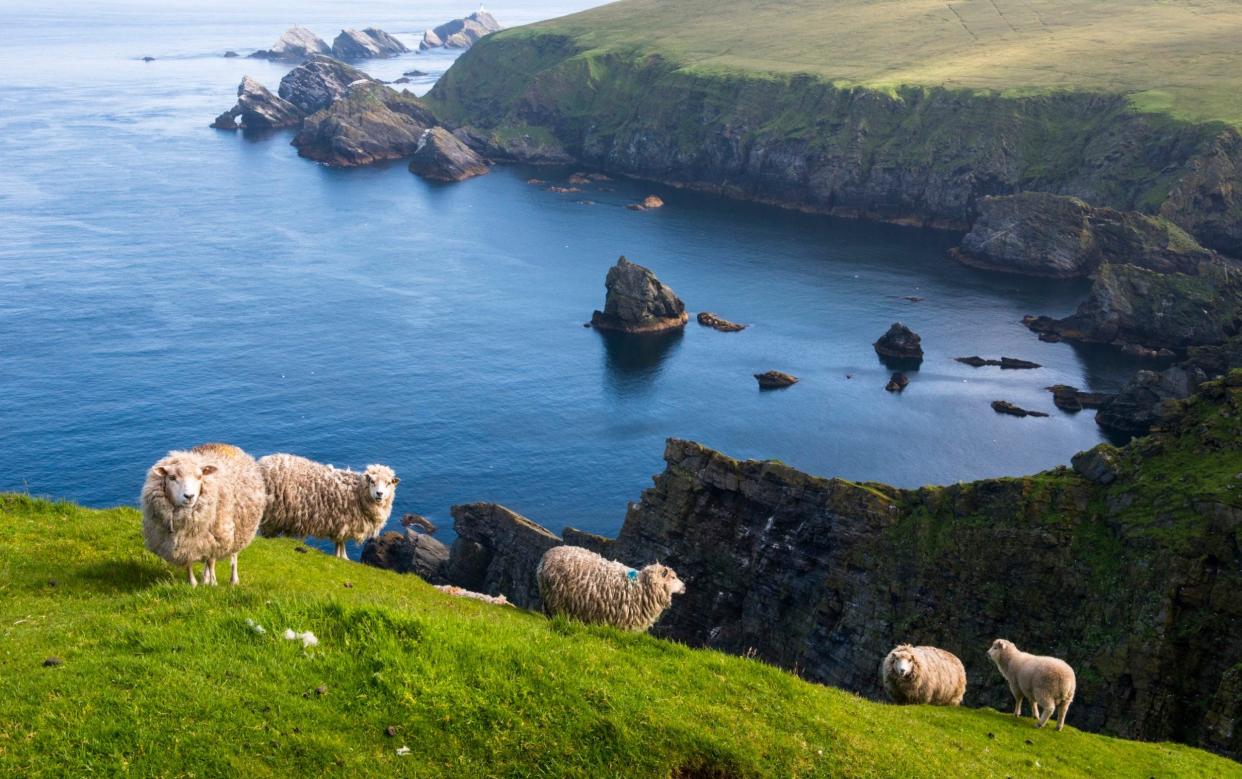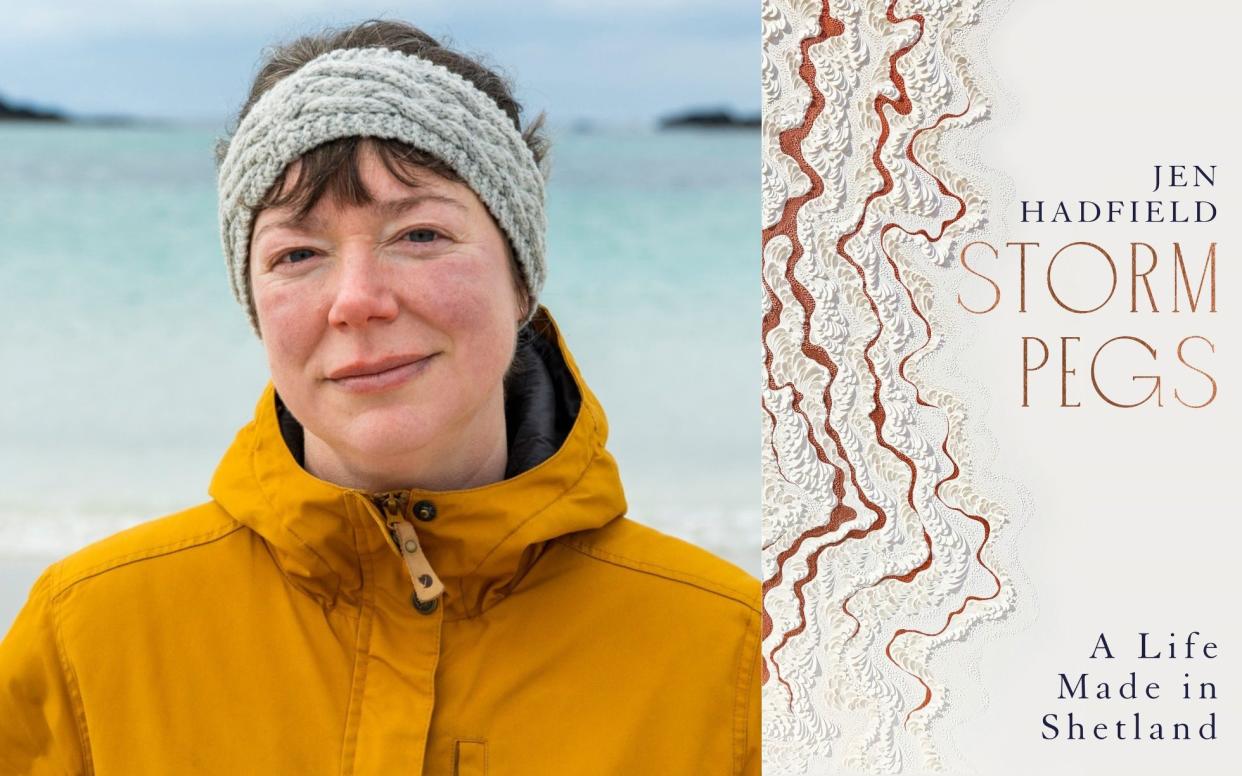A sensual love letter to the edge of the world

Shetland is much further from the mainland than most people think. That’s partly because, as the poet Jen Hadfield points out in her dazzling memoir about the 17 years she has spent living there, until recently Shetland usually appeared on maps of the British Isles in “a little rectangular pen, tucked in wherever it was convenient, presumably to save on blue ink”. No longer: legislation now requires that Shetland be shown on British maps in its true position, over 100 miles off the north-east coast of Scotland. Closer, in fact, to Norway than to Edinburgh.
This is a book about finding true positions, defining where you are in relation to all that has come before and all that surrounds you. Born in Cheshire to Canadian and English parents, Hadfield is not a Shetland native – she moved there in her 20s – and she feels her status as a “sooth-moother” keenly.
Now in her 40s, Hadfield’s prose memoir is built on the foundations of a highly decorated career as a poet, her awards including the 2008 TS Eliot Prize. But, as this book reveals, she has spent long periods without writing at all, living a pared-back existence in a caravan buffeted by Shetland gales, exchanging her home-grown vegetables for her neighbours’ homemade cakes.
“Nor am I under the illusion that Shetland needs me to write about it,” she says, in one of many bracingly self-aware digressions. Hadfield describes the extensive “Shetland literature” section of the bookshop in Lerwick, and concludes that “of all the places I have lived, I have never lived anywhere that talks about itself so much.”
Well, yes: and it’s tempting to presume that this book is just the latest entry in a well-established modern canon of lyrical nonfiction about both Shetland and island life more widely, from Amy Liptrot’s The Outrun (about Liptrot’s life in Orkney) to Sally Hubband’s Sea Bean (also about Shetland).
And, yes, tropes such as sea swimming and watching the aurora borealis can be found in Storm Pegs. But, despite some familiar set-pieces, this is no straightforward exercise in island romanticisation. It’s much weirder and more surprising than that.

For instance, Hadfield gives the sea not romance, but aggressive eroticism: “It ploughs, in white, continuous surges, through the cervix of the bay.” And in Hadfield’s early days living in Shetland, before building a career writing and teaching students over Zoom, she gets a disgusting-sounding day job “teasing worm after bouncy worm” out of vast expanses of salmon faeces, equipped only with a pair of tweezers, to determine the health of fish populations. I felt queasy just reading about this, but Hadfield utterly loves it. “I feel like a monk at a painstaking act of devotion,” she writes. “Every worm is a pink question mark after the question, ‘Where am I?’”
A friend of Hadfield’s, Magnie, shows her how to gut a cod. Hadfield flinches at the dead stare of its “human-looking iris”. But Magnie assures her that “all you need is a sharp knife and a clear conscience”, plunging in the blade as blood runs down the kitchen cabinets.
There’s plentiful beauty and humour, too. The book shines with the Shetland vocabulary that has previously given rich inspiration to Hadfield’s poetry: simmer dim (the long Shetland twilight in summer), innadaeks (inside), shaela (the colour of dark frost), stroopy (a teapot’s spout – or a man’s penis, depending on the context). Through all this, Hadfield paints Shetland vividly as a place ever-changing, made by its people, rich in language and stories. And she firmly resists any suggestion that her home is remote: “Is it not strange that we see other places as ‘remote’? Everywhere is the centre for someone, human or otherwise.”
Storm Pegs is a powerful hymn to Shetland and to community, as well as to the awesomeness of nature. This is a bewitching book, tactile and immersive, riven with salt winds, alive with human oddities and loud with the cries of seabirds. Everything glows in the light of Hadfield’s words, from slimy sea molluscs to grand island vistas.
“Do you see what I mean?” Sometimes she addresses the reader directly like this, as if grabbing you by the collar. “You would not believe who lives here,” she writes. “You would not believe what’s around the next bend.”
Charlotte Runcie is the author of Salt on Your Tongue: Women and the Sea. Storm Pegs is published by Picador at £18.99. To order your copy for £19.99, call 0808 196 6794 or visit Telegraph Books


